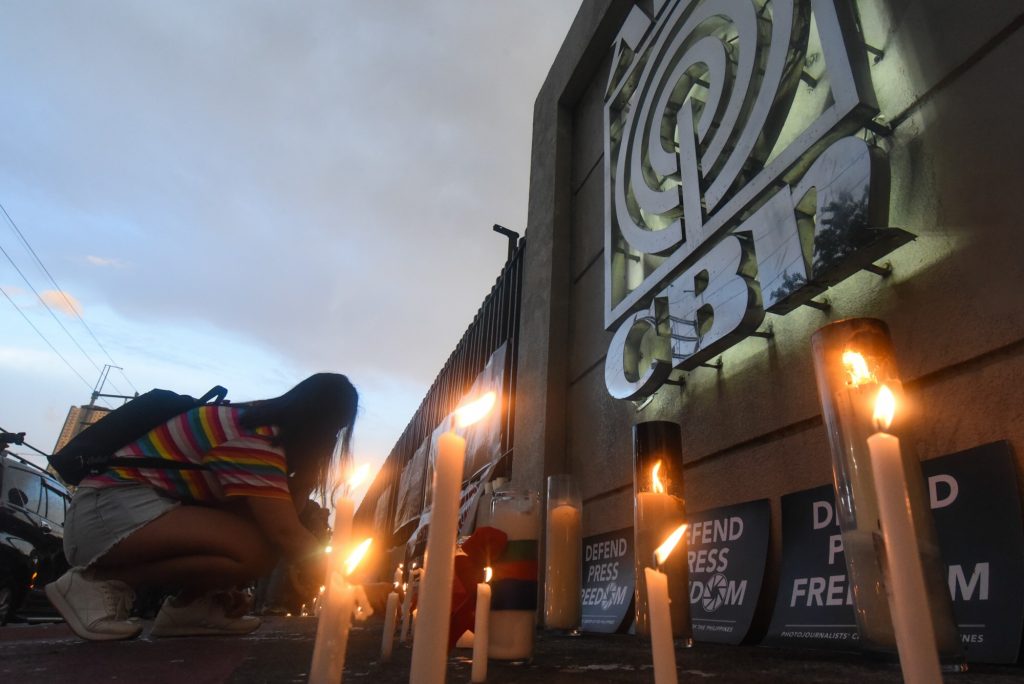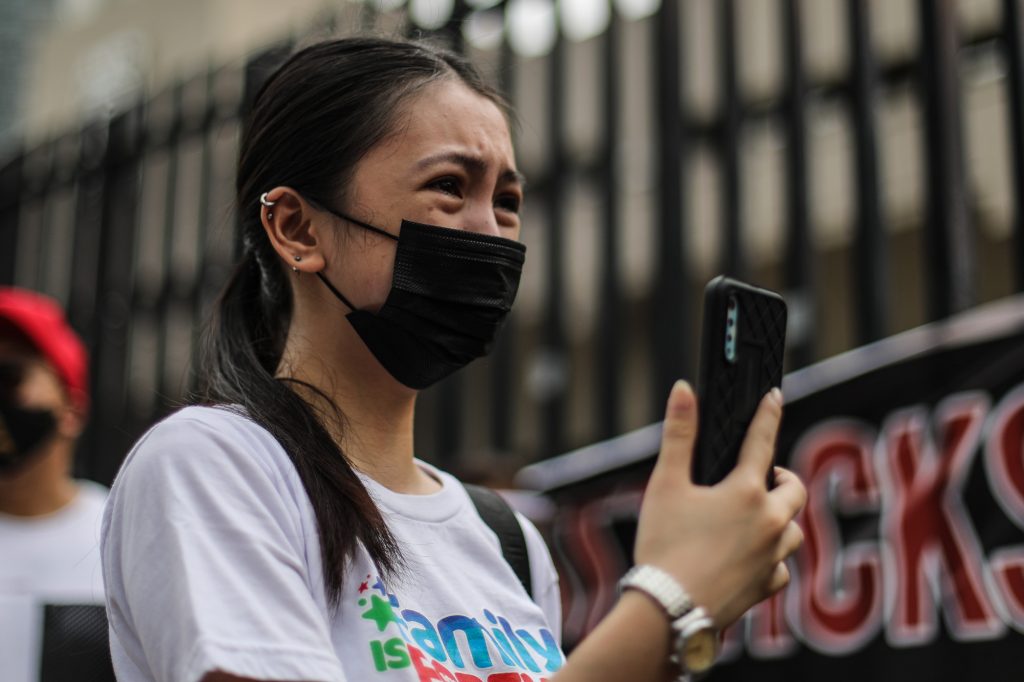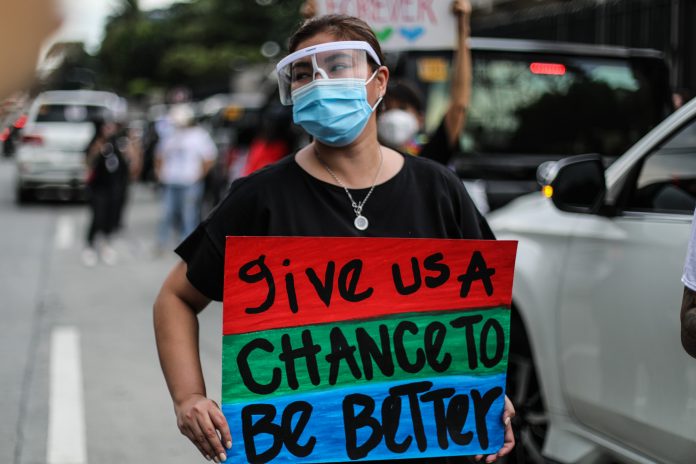Despite calls for respect for press freedom and the protection of the people’s right to know, Philippine legislators on July 10 rejected the bid of broadcast network ABS-CBN for a franchise to operate.
The network is officially shutting down after 70 members of the House Committee on Legislative Franchises voted to adopt a resolution rejecting the media company’s application.
The decision came following four years of repeated allegations made by President Rodrigo Duterte and his allies that ABS-CBN played partisan politics during the 2016 presidential elections.
In its decision, the congressional body said that “by no means the franchise application is related to press freedom,” adding that “it is what it is — a denial of a privilege granted by the State.”
The congressional body, which spent 12 hearing days of discussions on ABS-CBN’s application, said “the applicant was seen as undeserving of the grant of a legislative franchise.”
Various groups, including faith-based organizations have earlier expressed support for the renewal of the broadcast network’s franchise.
Catholic Church leaders have appealed to Congress to consider the people’s right to information in its decision.
In an open letter, Bishop Marcelino Antonio Maralit, head of the Commission on Social Communications of the bishops’ conference, said the decision of the legislators would affect “the millions who depend on [the network] for news and information.”
The prelate also said the decision would affect all those who depend on the media company “for their livelihood.”
Bishop Maralit asked the legislators, apparently to no avail, to vote in favor of the media network even as he “humbly ask you to vote according to your conscience.”
The prelate said the country’s Church leaders believe in the importance of the role of media “as a vital source of information in Philippine society.”
He said ABS-CBN “forms part of the whole democratic landscape” of the country and “continues to help in making the latest news available to Filipinos” worldwide.

‘Deeply hurt’
In a statement, ABS-CBN president and CEO Carlo Katigbak said they are “deeply hurt” by the decision of the congressional body.
“We believe that we have been rendering service that is meaningful and valuable to the Filipino public,” he said.
“Nevertheless, we would like to thank the committee for allowing us a chance to air our side on all the issues raised against us,” added Katigbak.
He also expressed his gratitude to “all the congressmen who stood by their bills to renew our franchise, or who spoke out on our behalf during the hearings.”
“We are forever grateful,” he said.
“We also thank everyone who expressed their support and offered their prayers for us. We could not have gotten to this point without you,” added Katigbak.
“We remain committed to public service, and we hope to find other ways to achieve our mission,” he said.
“Together with our employees and our audiences all over the world, we share in your sadness over this setback. We look forward to the day when we can again reunite under our broadcast,” said Katigbak.

‘Grievous assault on press freedom’
Human Rights Watch described the decision of Congress as “a grievous assault on press freedom in the country.”
“Not since the dictator Ferdinand Marcos shut down ABS-CBN and other media outlets in 1972 has a single government act caused so much damage to media freedom,” said Phil Robertson, Deputy Asia Director of Human Rights Watch.
He said the decision “solidifies the tyranny of President Rodrigo Duterte who accused ABS-CBN of slights against him and politically targeted it for refusing to toe the government’s line and criticizing his so-called ‘war on drugs.’”
“Today’s vote to deny the franchise renewal is an astounding display of obsequious behavior by congressional representatives, kowtowing to Duterte by agreeing to seriously limit media freedom in the Philippines,” added Robertson.
He said it is “a black day for media freedom in a country previously regarded as a bastion of press freedom and democracy in the region.”
The Photojournalists’ Center of the Philippines said the decision showed the “callous and brazen conduct” of some of the country’s legislators.
“Press freedom is when journalists who have dedicated all their lives to this profession can continue to do so if the programs and the platforms they are working for still exist,” said Fernando Sepe Jr., the center’s chairman.
“This attack on legitimate media and the recent passage of the Anti-Terrorism Act is a throwback to the time of autocratic rule under Marcos,” added Sepe.

Labor issue
Activist youth group Akbayan said the ABS-CBN’s franchise issue is “not just about the franchise itself.”
“This is a labor issue, with the media giant employing over 11,000 working people,” said the group in a statement.
“The government denial of the franchise will result to more than 11,000 families without income in the middle of the pandemic,” said RJ Naguit, chairman of Akbayan Youth.
Labor group Kilusang Mayo Uno (KMU) condemned the decision, saying it is “an affront to press freedom everywhere.”
“It sends a clear message that a media organization must not irk Duterte or his minions or else they can be shut down,” said Jerome Adonis, secretary general of KMU.
“It promotes a chilling effect on the media,” he added.
“This is, more than anything, an attack on the 11,000 workers who will lose their jobs as the network faces permanent closure,” said Adonis.
Activist media group Altermidya said ABS-CBN is “being punished for reporting and commenting on issues in a manner unacceptable to the Duterte administration.”
“It is also a warning to other media outfits that if the Duterte regime can shut down the largest broadcasting network in the country with impunity, every journalist should think twice before it reports truthfully, or criticizes and dares hold government to account,” read the group’s statement.
“All these are a blow to the people’s right to information. And a public denied of its right to know is a copious climate for tyranny and impunity,” it added.
It was the second time the media giant was forcibly closed down.
On Sept. 23, 1972, ABS-CBN was shut down as former dictator Ferdinand Marcos declared martial law.
The government then seized all the network’s properties and used the facilities to run the government television network and the Philippine News Agency.
ABS-CBN resumed operations after Marcos was deposed by the 1986 “People Power” uprising.
Marielle Lucenio and Mark Saludes contributed to this report.









